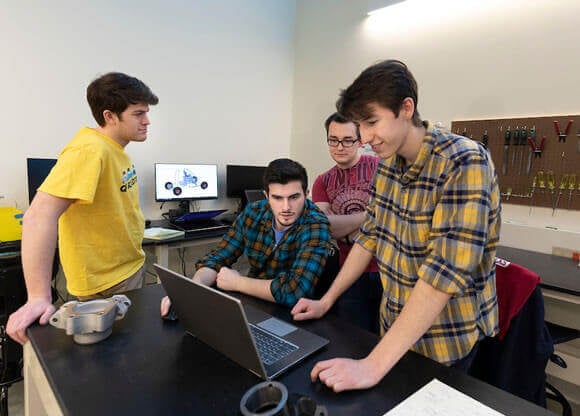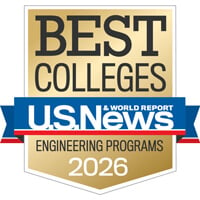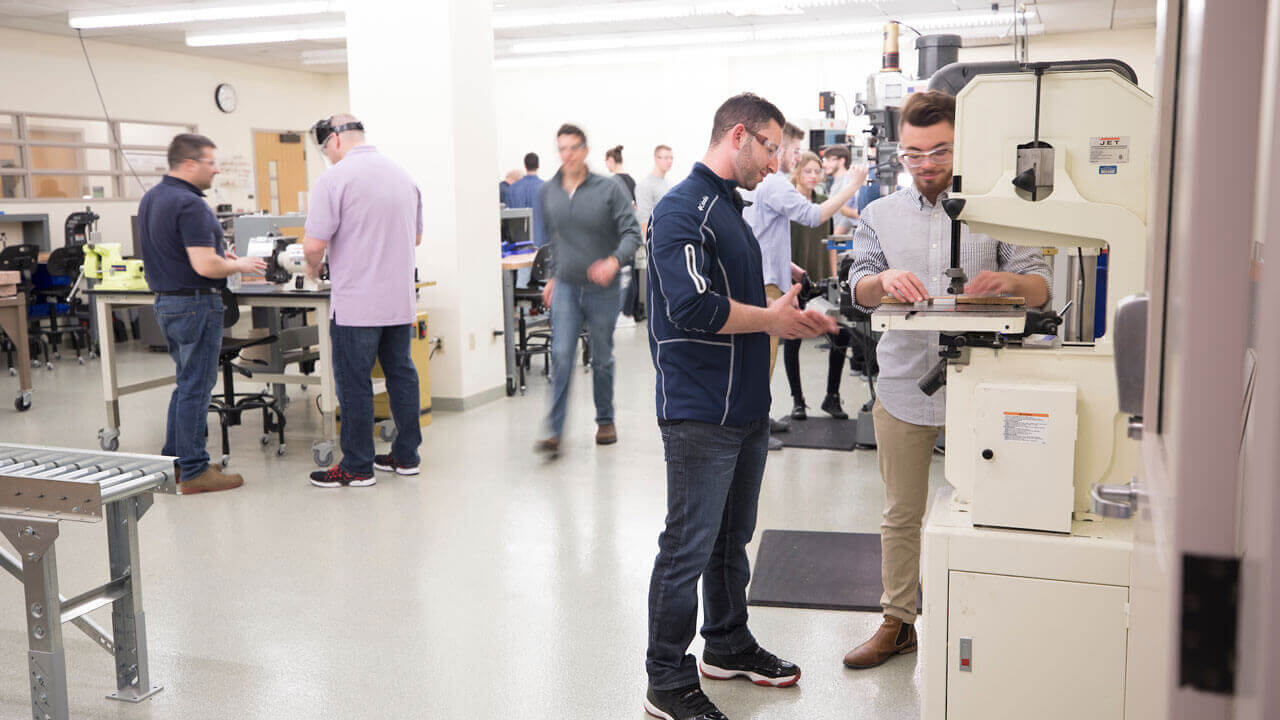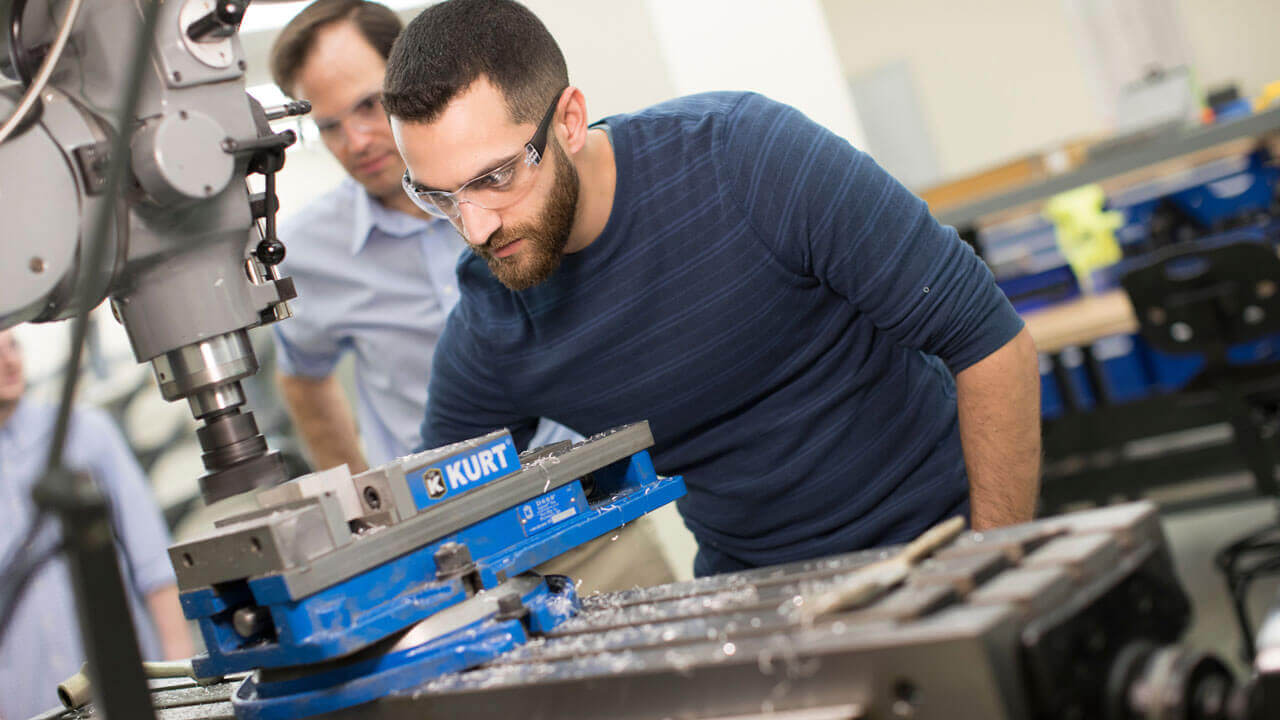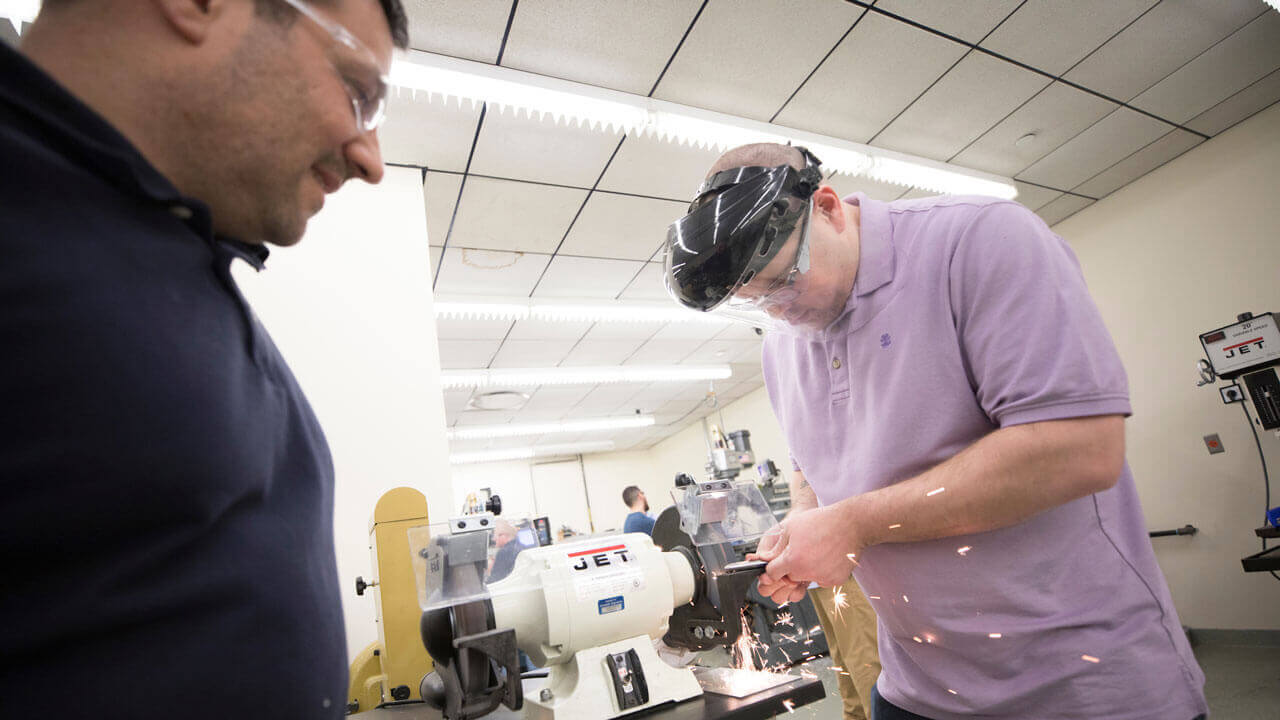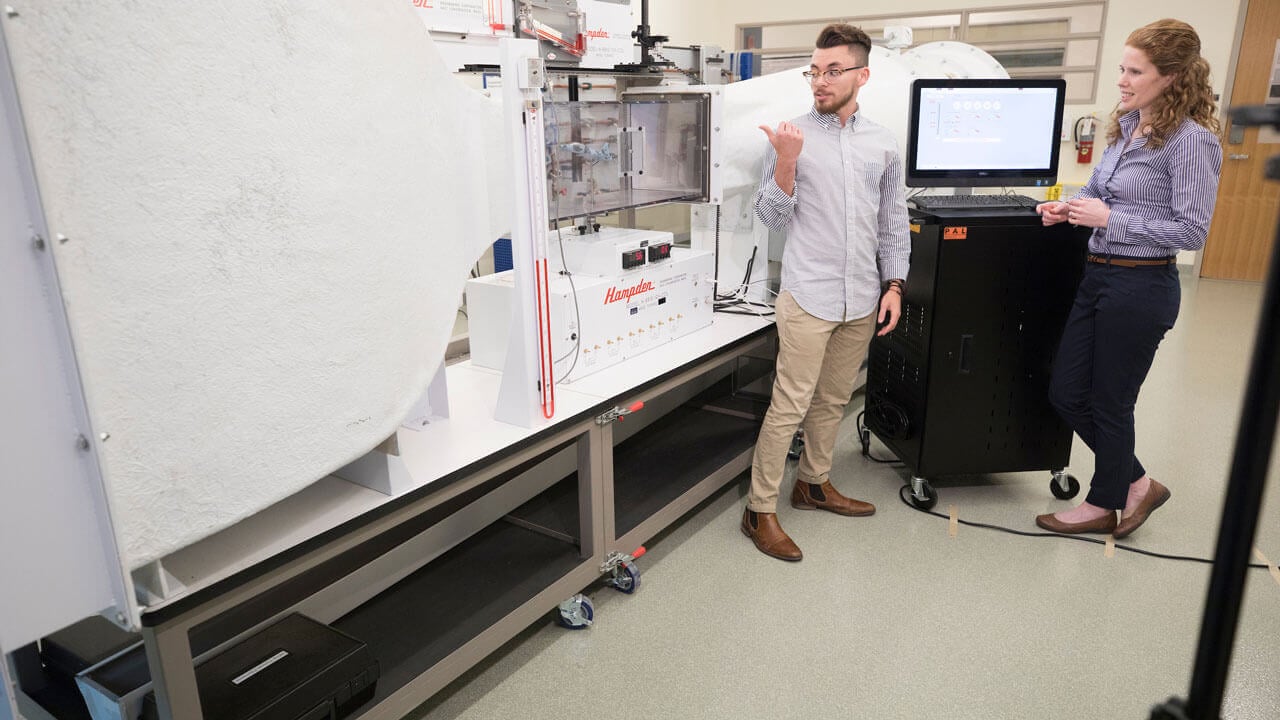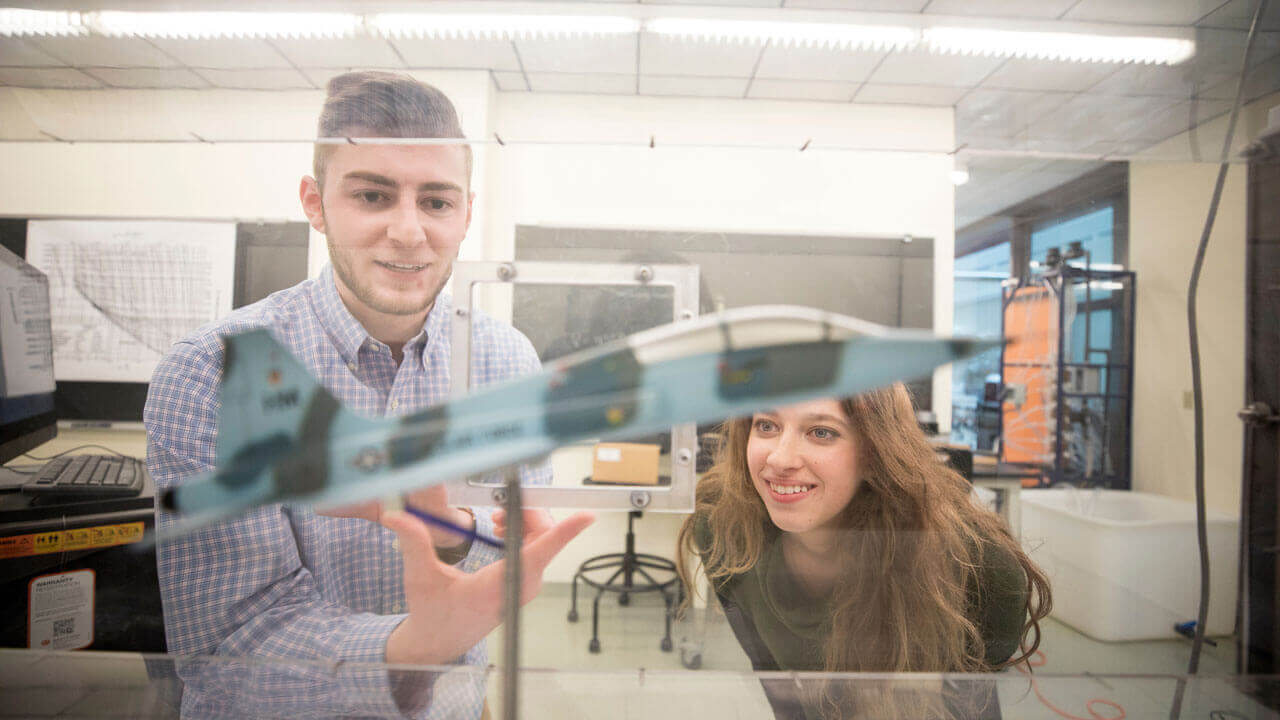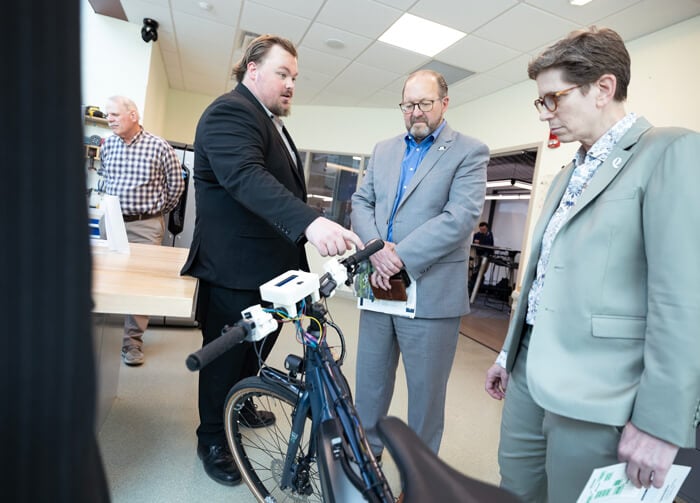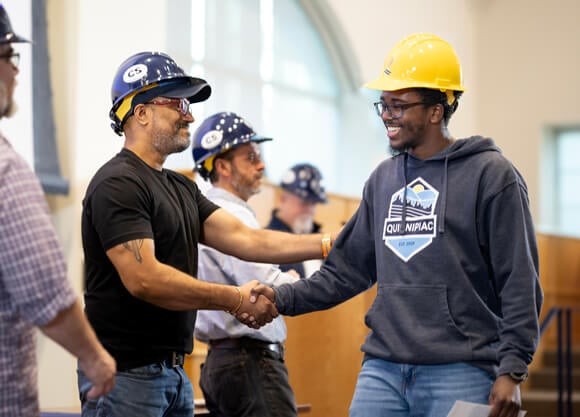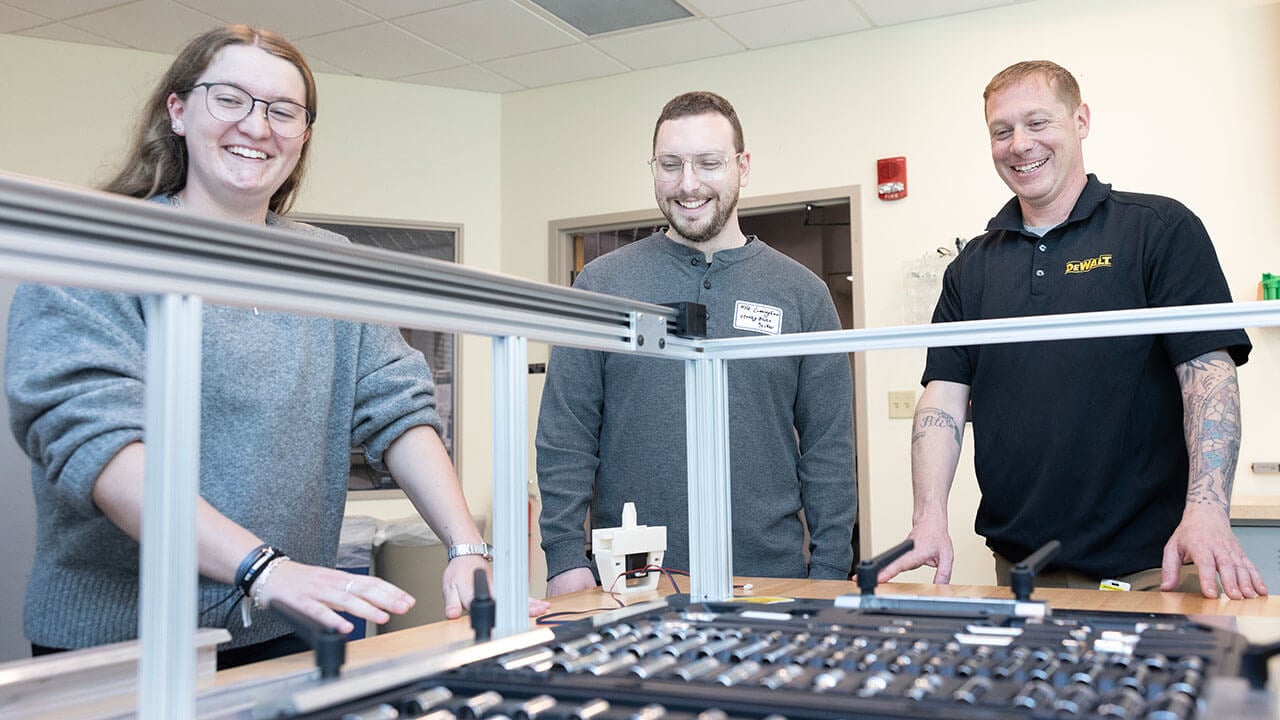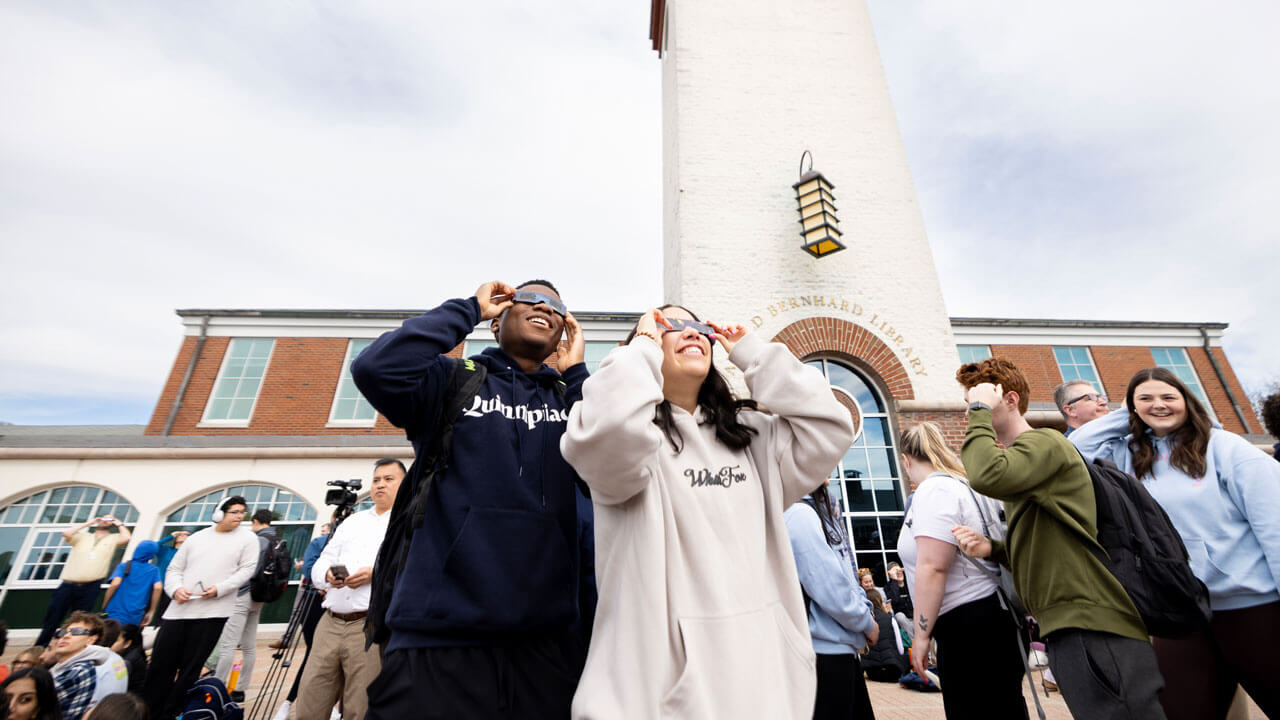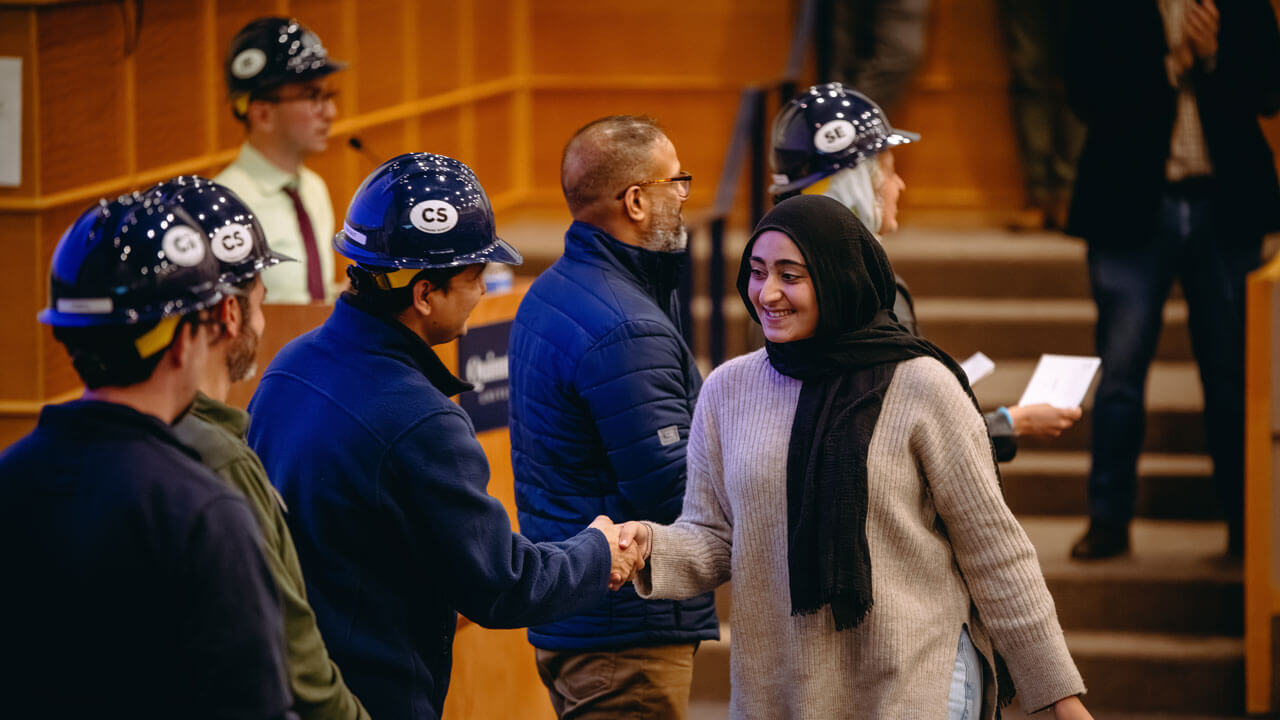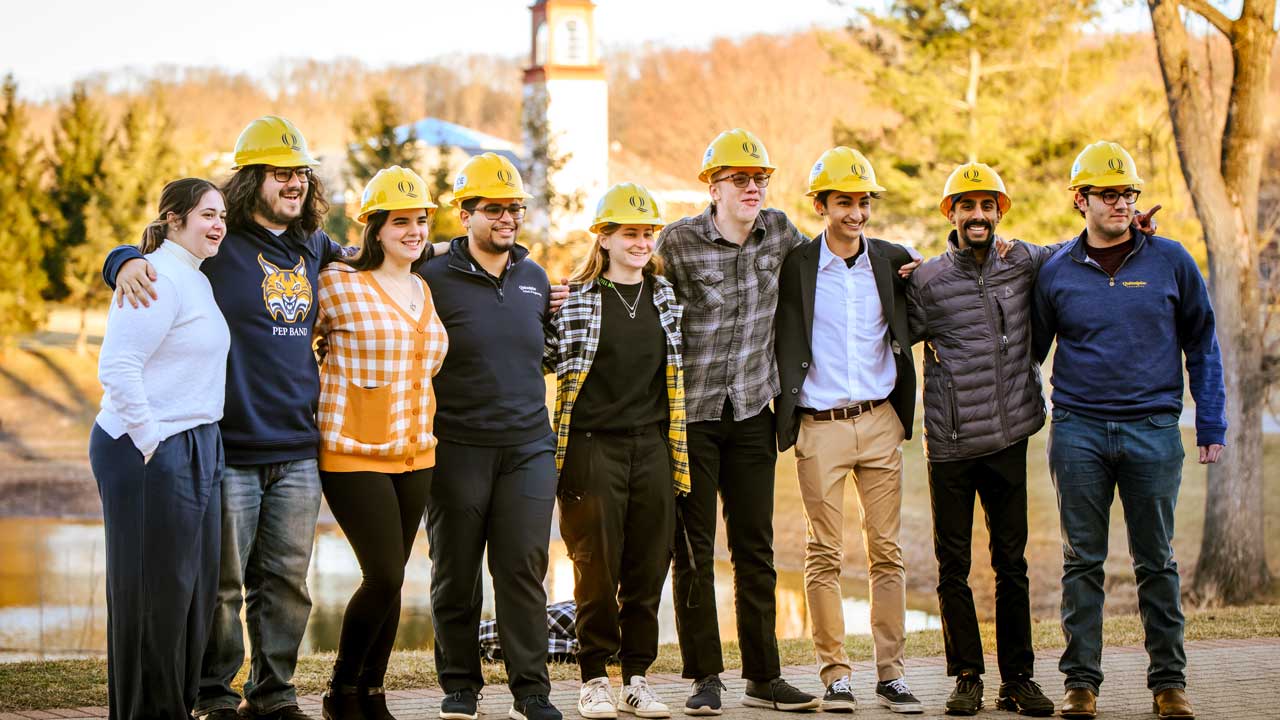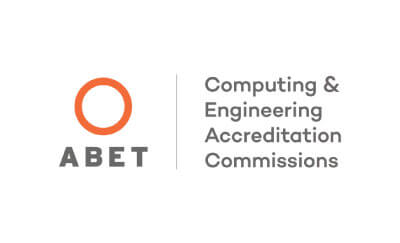Mechanical engineers harness math, science and technology to solve real-world problems every day. Whether you see yourself working on a next-generation jet engine, designing lifesaving medical devices or manufacturing tools that promote safety, efficiency and reliability on job sites, we’ll provide you with the foundation and skills necessary to thrive in any professional environment.
Join society’s designers, builders and problem solvers
Companies all over the world rely on mechanical engineers to design, build, test and improve their most important mechanical systems and devices. In our program, you’ll develop the design and analytical skills necessary for careers in many diverse fields —from aerospace, robotics and automotive to power and energy, manufacturing, and biomedical.
Teaching is our faculty’s top priority, and our professors are committed to developing students into career-ready mechanical engineers on the path to licensure. Passionate scholars and accomplished in their fields, our faculty members bring the principles of fluid mechanics, thermodynamics, heat transfer, control theory and engineering design to life for you in a supportive environment characterized by small class sizes and a close-knit community.
Our labs and classrooms are designed to provide you with a hands-on, collaborative and multidisciplinary learning experience. From the lathes and mills in the machine shop, to the wind tunnel in our thermodynamics and heat transfer lab, our teaching equipment emphasizes dynamic mechanical engineering principles in action. A large portion of our curriculum focuses on design and fabrication, giving you ample opportunities to bring prototypes and models of your own design to life with powerful software tools, 3D printers and more.
Courses and lab work also provide early opportunities for interdisciplinary collaboration, giving you an edge as you begin internships and, later, your career. You’ll have the chance to participate in interdepartmental projects, not just with your peers in other engineering programs, but with students from a wide range of backgrounds, from health sciences to entrepreneurship.

